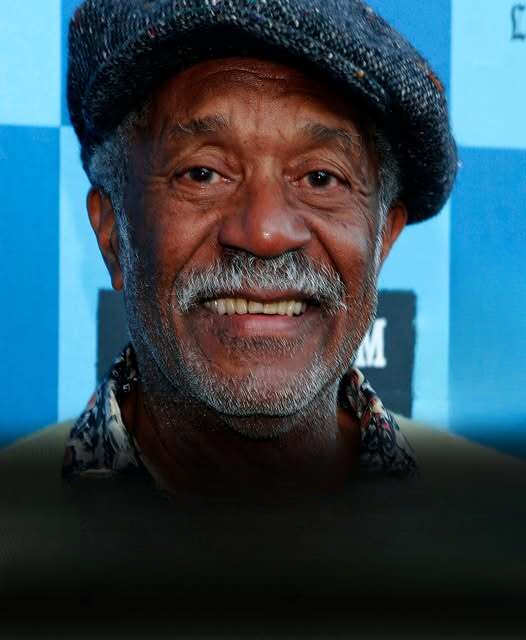The entertainment world is mourning the loss of veteran actor Lee Weaver, a beloved and respected figure in television, film, and stage, who passed away peacefully at his home in Los Angeles at the age of 95. His family confirmed the sad news on September 22, remembering him as a man of immense warmth, creativity, and grace who dedicated his life to art, storytelling, and cultural representation.
Born on April 10, 1930, in Fort Lauderdale, Florida, Weaver’s journey to stardom was a remarkable one. Before his acting career took off, he lived a life filled with service, skill, and passion. A proud U.S. Army veteran, he served four years in the military, an experience that profoundly shaped his sense of discipline and purpose. Afterward, Weaver worked as a linotype engineer for The New York Times, where his attention to detail and strong work ethic helped define his character.
But creativity was always calling. Weaver’s love for the arts led him to the New York City jazz scene, where he became a promoter at the legendary Birdland Jazz Club. Surrounded by music greats and a culture of innovation, he developed an appreciation for timing, expression, and performance—skills that would later shine through in his acting career.
A Breakthrough in Television and Film
Weaver’s first steps into acting came through theater in the 1950s, where he built his craft with patience and dedication. His first on-screen appearance came in the adventure series Sheena, Queen of the Jungle, a modest beginning to what would become a decades-long career spanning both television and film.
Throughout the 1960s and 1970s, Lee Weaver became a familiar face on American TV. His natural charisma and versatility earned him roles on some of the era’s most popular shows, including Good Morning World, I Spy, The Wild Wild West, Mannix, Julia, and The Bill Cosby Show. His ability to embody diverse characters made him a standout performer in a rapidly evolving entertainment industry.
In later years, Weaver continued to appear in hit shows such as Kojak, The Blue Knight, Soap, Good Times, The Jeffersons, and The Fresh Prince of Bel-Air. Whether playing serious, comedic, or heartfelt roles, Weaver always brought authenticity and emotional depth to the screen.
A Voice that Spoke Volumes
Beyond his on-screen performances, Weaver also became a talented voice actor, lending his deep, rich tone to major Hollywood films. His voice could be heard in How Stella Got Her Groove Back (1998), O Brother, Where Art Thou? (2000), Donnie Darko (2001), and The 40-Year-Old Virgin (2005). His voice work added a new dimension to his career, further proving his adaptability and enduring creative power.
One of his most memorable modern roles came in the Netflix series Grace and Frankie, where he played Mel Cordray. Even in his later years, Weaver continued to captivate audiences, displaying his signature blend of humor, wisdom, and sincerity. His presence on screen—gentle yet commanding—made every appearance memorable.
A Life Beyond the Camera
Lee Weaver’s impact extended far beyond his acting career. Those who knew him personally described him as a man of great kindness, humility, and integrity. He was deeply committed to his family and his community, often mentoring younger actors and advocating for greater representation in Hollywood.
Weaver shared a long and loving marriage of 54 years with actress Ta-Tanisha, best known for her own work in television and theater. Together, they raised their daughter, Leis La-Te, and built a life centered around love, faith, and creative expression. His family released a statement expressing their gratitude for the outpouring of support from fans and colleagues, noting that Weaver “lived a full and meaningful life, bringing joy and inspiration to all who knew him.”
A Lasting Legacy
With a career spanning more than six decades, Lee Weaver’s influence on American entertainment cannot be overstated. He was part of a generation that helped shape the television landscape, breaking barriers and paving the way for more inclusive storytelling. His work represented resilience, artistry, and humanity—qualities that made him a cherished figure both on and off the screen.
Weaver’s passing marks not only the end of a life well-lived but also the continuation of a legacy that will endure through the countless performances he left behind. His characters, from small guest appearances to memorable supporting roles, carried sincerity and heart that resonated with audiences for generations.
As fans, friends, and colleagues reflect on his extraordinary journey, one thing remains clear: Lee Weaver was more than an actor—he was a storyteller, a trailblazer, and a gentleman of the arts. His ability to find truth in every role, to make people laugh, think, and feel, is a testament to his immense talent and compassion.
Lee Weaver’s life reminds us that greatness is not defined by fame alone but by the depth of one’s spirit and the love shared with others. Though he may be gone, his work will continue to inspire, entertain, and touch hearts for years to come.
